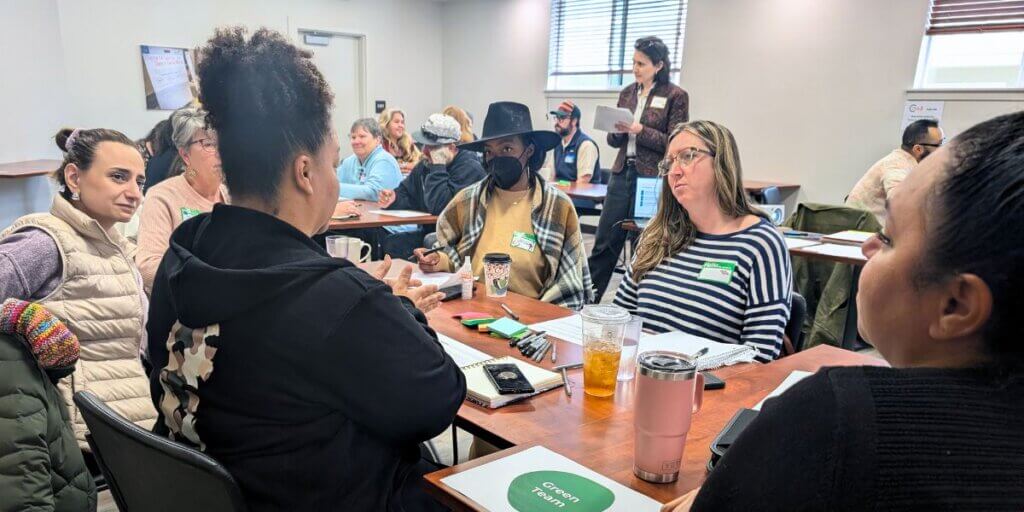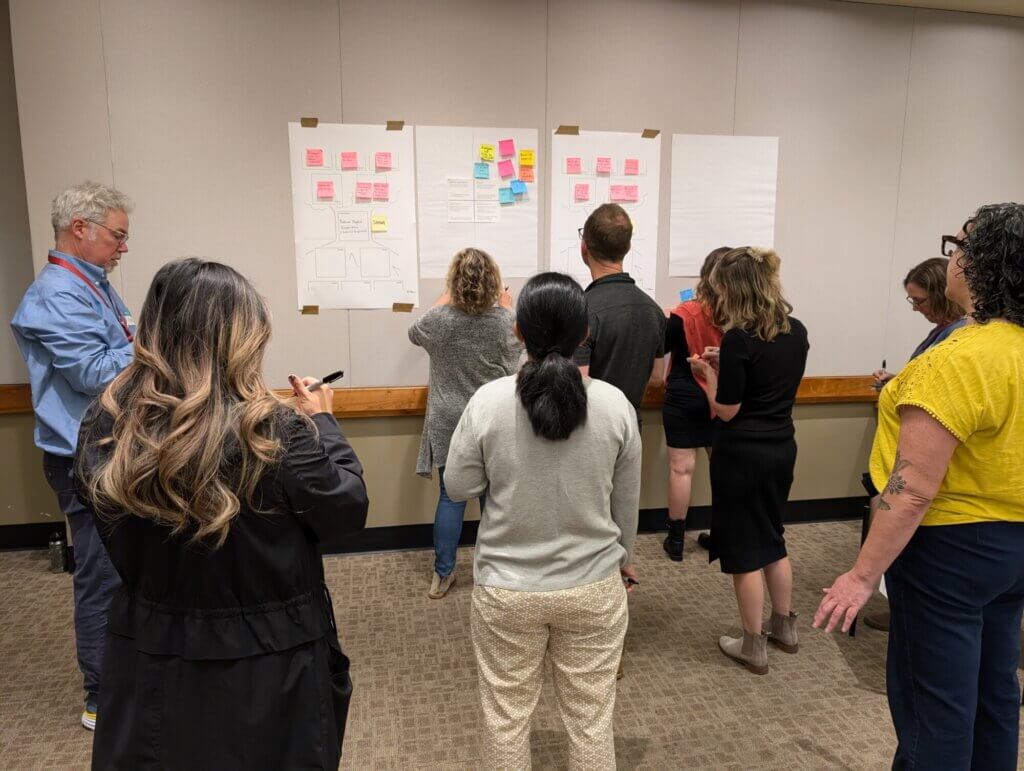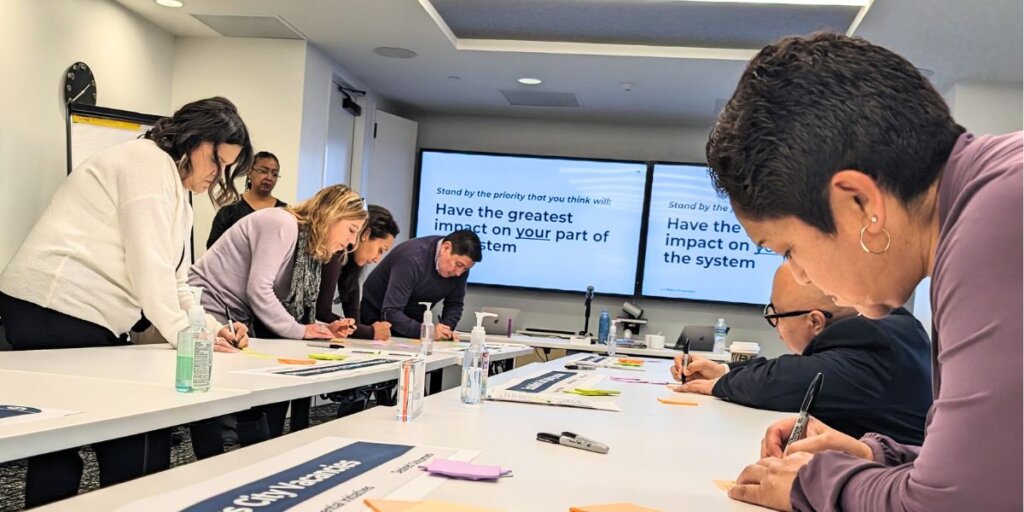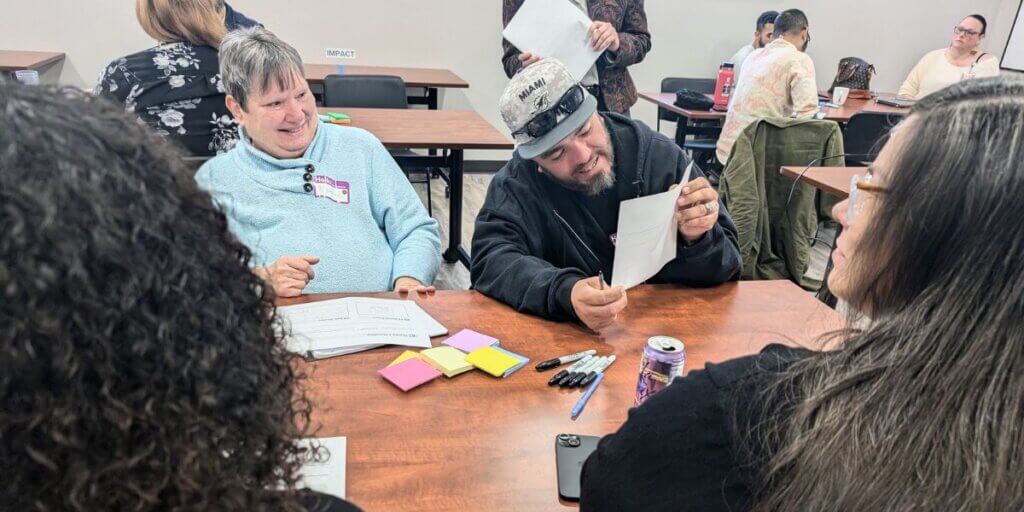Case Study
EPIC | Humboldt County Benefits Access Pilot

Jobs for the Future (JFF) & CivicMakers partnered to design and facilitate the Workforce Communities of Action (WCA) pilot program. This national cohort of workforce boards aimed to strengthen workforce professionals’ ability to identify and collaboratively address complex issues.
20 communities (workforce boards) were selected to share and explore their challenges in a structured environment and then define viable ‘Action Plans’ for implementing solutions. After eight months of guided exploration into their challenges, 11 communities officially submitted Action Plans for seed funding consideration. Of those candidates, four communities were selected to receive $10,000 toward implementing their Action Plans (Workforce Development Board of Solano County, Hampton Roads Workforce Council, SCPa Works, and Southern Indiana Works). This flexible funding will help these four communities take critical next steps in addressing their newly scoped challenges.
“I’m so appreciative of CivicMakers’ creativity, preparedness, expert facilitation, and thoroughness. CivicMakers were true partners in delivering on our concept. They were collaborative, respectful, and produced high quality content on time and on budget.”
Veronica Buckwalter Director in Solutions Design & Delivery, Jobs For the Future
At a time when public benefits programs are in a state of uncertainty due to the utter chaos ensuing at…



